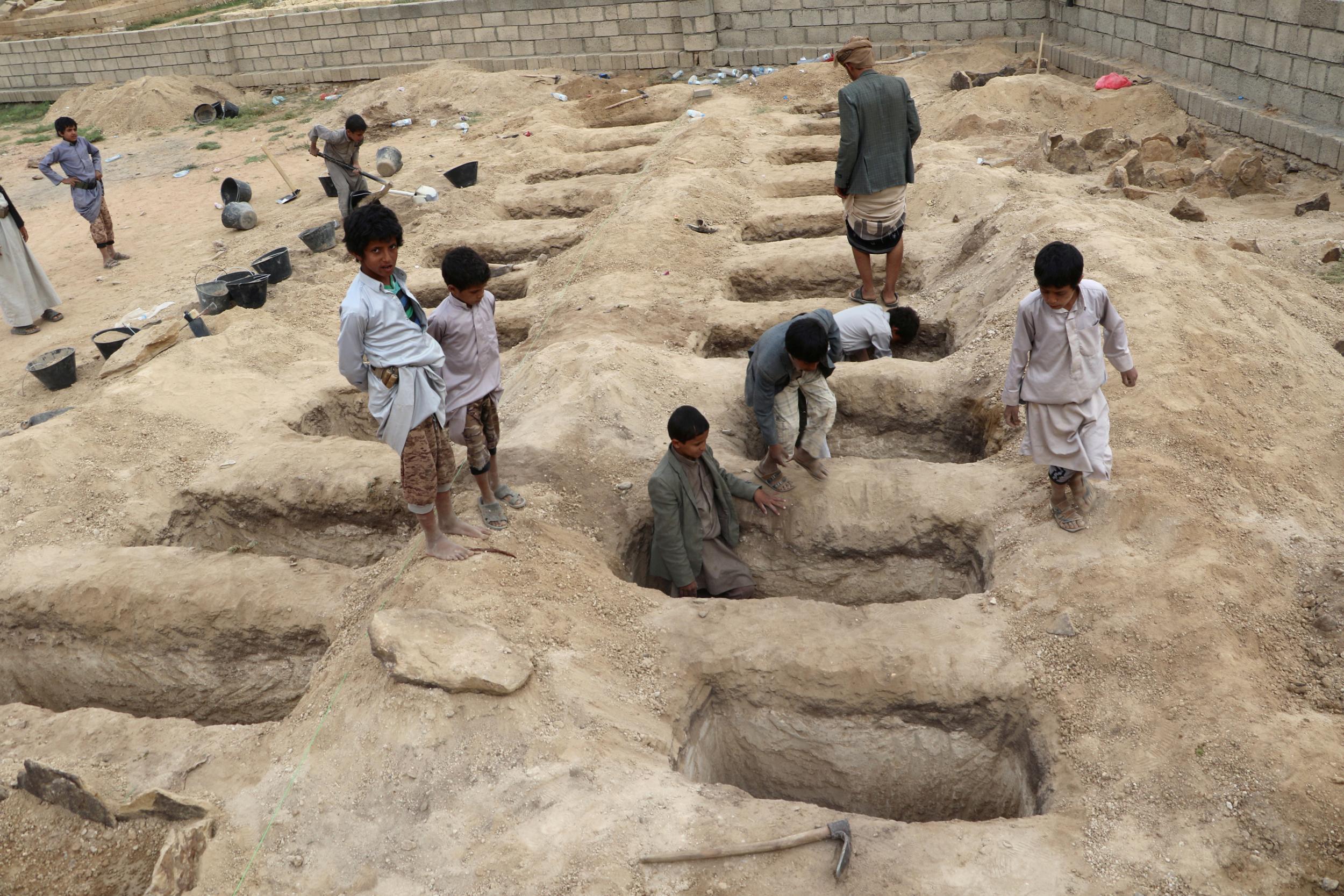Saudi-led coalition admits air strike on Yemen school bus was 'unjustifiable'
'There was a clear delay in preparing the fighter jet at the appropriate time and place, thus losing the opportunity to target this bus as a military target'

Your support helps us to tell the story
From reproductive rights to climate change to Big Tech, The Independent is on the ground when the story is developing. Whether it's investigating the financials of Elon Musk's pro-Trump PAC or producing our latest documentary, 'The A Word', which shines a light on the American women fighting for reproductive rights, we know how important it is to parse out the facts from the messaging.
At such a critical moment in US history, we need reporters on the ground. Your donation allows us to keep sending journalists to speak to both sides of the story.
The Independent is trusted by Americans across the entire political spectrum. And unlike many other quality news outlets, we choose not to lock Americans out of our reporting and analysis with paywalls. We believe quality journalism should be available to everyone, paid for by those who can afford it.
Your support makes all the difference.The Saudi-led military coalition responsible for an airstrike in Yemen last month that killed 40 children has accepted that the attack was “unjustified”.
The findings by the Joint Incident Assessment Team (Jiat), an investigative entity set up by the coalition, follow mounting international pressure to do more to limit civilian casualties in the Yemen civil war.
The Riyadh operations centre initially said the strike was a “legitimate military operation carried out in accordance with humanitarian law”.
A Jiat legal adviser Mansour Ahmed al-Mansour said the strikes had been based on intelligence indicating that the bus was carrying Houthi leaders, a legitimate military target.
He acknowledged that delays in executing the strike and receiving a no-strike order should be investigated.
“There was a clear delay in preparing the fighter jet at the appropriate time and place, thus losing [the opportunity] to target this bus as a military target in an open area in order to avoid such collateral damage,” Mr al-Mansour told reporters in the Saudi capital.
He added: “The team believes that the coalition forces should immediately review the application of their rules of engagement to ensure compliance."
Mr al-Mounsour recommended that the coalition hold those responsible for the error accountable and compensate victims.
Last week, a United Nations panel of human rights experts said that some coalition air strikes may constitute war crimes.
US secretary of defence Jim Mattis said American support for the Saudi-led coalition was not “unconditional”, but suggested his country would continue to support the alliance.
At least 51 people are thought to have died in the attack after a missile hit a stationary bus in a market in Dahyan, in Houthi rebel-controlled Saada province.
Footage of distressed children covered in blood arriving at medical centres sparked outrage around the world. The incident also reignited debate over the role of Western countries such as the UK and US in supporting the coalition fighting Houthi rebels through both arms sales and operational support.
Hussein Tayeb, who lost his sons 14-year-old Yusef, 11-year-old Ahmed and nine-year-old Ali, asked God to grant him patience.
“I was one of the first to arrive on the scene, seeking to rescue the wounded; I lifted a body and I found that it was Ahmed’s face. I hugged him, he was my son,” he said.
Henrietta Fore, executive director of the UN’s children’s fund, said the “horrific” attack marked “a low point in Yemen’s brutal war.”
Join our commenting forum
Join thought-provoking conversations, follow other Independent readers and see their replies
Comments